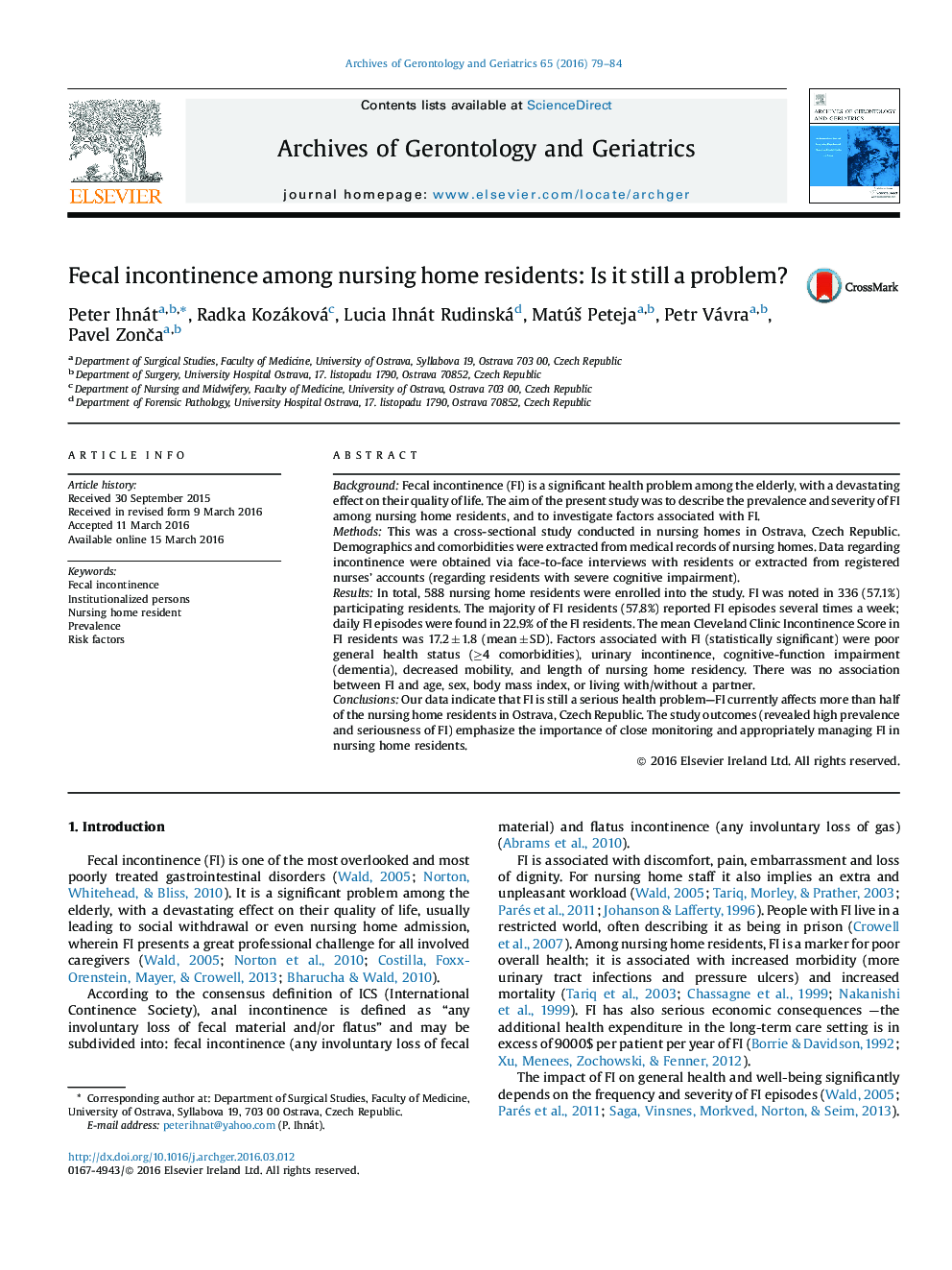| کد مقاله | کد نشریه | سال انتشار | مقاله انگلیسی | نسخه تمام متن |
|---|---|---|---|---|
| 1902703 | 1534424 | 2016 | 6 صفحه PDF | دانلود رایگان |
• Fecal incontinence (FI) was noted in 57.1% of participating nursing home residents.
• 57.8% of residents with FI reported incontinence episodes several times a week.
• Cleveland Clinic Incontinence Score in residents with FI was 17.2 ± 1.8 (mean ± SD).
• Main FI associated factors were high comorbidity, dementia and decreased mobility.
• Study outcomes emphasize importance of diagnosing and appropriately managing FI.
BackgroundFecal incontinence (FI) is a significant health problem among the elderly, with a devastating effect on their quality of life. The aim of the present study was to describe the prevalence and severity of FI among nursing home residents, and to investigate factors associated with FI.MethodsThis was a cross-sectional study conducted in nursing homes in Ostrava, Czech Republic. Demographics and comorbidities were extracted from medical records of nursing homes. Data regarding incontinence were obtained via face-to-face interviews with residents or extracted from registered nurses’ accounts (regarding residents with severe cognitive impairment).ResultsIn total, 588 nursing home residents were enrolled into the study. FI was noted in 336 (57.1%) participating residents. The majority of FI residents (57.8%) reported FI episodes several times a week; daily FI episodes were found in 22.9% of the FI residents. The mean Cleveland Clinic Incontinence Score in FI residents was 17.2 ± 1.8 (mean ± SD). Factors associated with FI (statistically significant) were poor general health status (≥4 comorbidities), urinary incontinence, cognitive-function impairment (dementia), decreased mobility, and length of nursing home residency. There was no association between FI and age, sex, body mass index, or living with/without a partner.ConclusionsOur data indicate that FI is still a serious health problem—FI currently affects more than half of the nursing home residents in Ostrava, Czech Republic. The study outcomes (revealed high prevalence and seriousness of FI) emphasize the importance of close monitoring and appropriately managing FI in nursing home residents.
Journal: Archives of Gerontology and Geriatrics - Volume 65, July–August 2016, Pages 79–84
